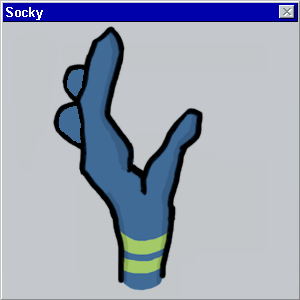The British Novelists
March 12, 2022 4:45 PM Subscribe
Anna Laetitia Barbauld, "On the Origin and Progress of Novel-Writing": "A Collection of Novels has a better chance of giving pleasure than of commanding respect ... It might not perhaps be difficult to show that this species of composition is entitled to a higher rank ... A good novel is an epic in prose ..." Barbauld's essay gives a brief history of the novel--a starting point for readers of her 50 volume / 28 novel collection The British Novelists, published in 1810.
Some texts named in the essay (*a few untranslated):
Barbauld previously: Weird Tales from the 18th Century.
Some texts named in the essay (*a few untranslated):
- Before 1700: Aristides of Miletus, Milesian Tale (lost); Apuleius, The Golden Ass; Longus, Daphnis and Chloe; Heliodorus, Theagenes and Chariclea; La Chanson de Roland; Wace, Roman de Brut; Boccaccio, The Decameron; Amadis of Gaul (2, 3, 4); More, Utopia; Rabelais, Gargantua and Pantagruel; Palmerin of England (2, 3, 4); Don Bellianis of Greece; Margaret, Queen of Navarre, The Heptameron; Sidney, The Countess of Pembroke's Arcadia; Mateo Alemán, Guzmán de Alfarache*; Cervantes, Don Quixote; d'Urfé, Astrea*; Burton, The Anatomy of Melancholy; Barclay, Argenis*; Corneille, The Cid; Calprenède, Cassandra; Mademoiselle de Scudéry, Artamène, ou le Grand Cyrus*; Scarron, Le Roman Comique*; Mademoiselle de Scudéry, Clelia; Boyle, Parthenissa; Harrington, Oceana; Boileau, Les Héros de Roman*; Madame de Lafayette, Zayde*; Madame de Lafayette, The Princess of Clèves; Míngjiāo Zhōngrén 名教中人 (pseudonym), Hau Kiou Choaan, or The Pleasing History; Behn, Oroonoko; Fénelon, Adventures of Telemachus.
- 1700-1775: Lesage, The Devil on Two Sticks; Manley, The New Atalantis; Lesage, Gil Blas (2, 3); Swift, Gulliver's Travels; Terrasson, The Life of Sethos*; Abbé Prévost, Manon Lescaut; Marivaux, La Vie de Marianne* / Paysan parvenu*; Lesage, Le Bachelier de Salamanque*; Berington, The Adventures of Gaudentio di Lucca; Brooke, Gustavus Vasa; Fielding, The Adventures of David Simple; Madame de Graffigny, Letters of a Peruvian Woman; Voltaire, Babouc; Fielding, The Governess; or The Little Female Academy; Haywood, The History of Miss Betsy Thoughtless; Haywood, The Invisible Spy; Amory, Memoirs: Containing the Lives of Several Ladies of Great Britain; Amory, The Life and Opinions of John Buncle; Sterne, Tristram Shandy; Voltaire, Candide; Johnstone, Chrysal; Colman, Polly Honeycombe; Sheridan, The Memoirs of Miss Sidney Bidulph; Rousseau, Julie, ou la nouvelle Héloïse* (2, 3); Rousseau, Émile; Brooke, The Fool of Quality; Wieland, Agathon* (partial trans. 1, 3, 4); Voltaire, L'Ingénu*; Marmontel, Bélisaire; Sterne, A Sentimental Journey through France and Italy; Mulso, Callistus; or, The Man of Fashion; Ramsay, Les Voyages de Cyrus*; Goethe, The Sorrows of Young Werther.
- 1776-1810: Marmontel, The Incas (2); Graves, Columella (v.1 only); Pratt, Emma Corbett; Schiller, The Robbers; Madame de Montolieu, Caroline de Lichtfield*; Madame de Genlis, Adelaide and Theodore (2, 3); Madame de Genlis, Tales of the Castle; Florian, Galatée*; Schiller, The Ghost-Seer; Saint-Pierre, Paul and Virginia; Saint-Pierre, The Indian Cottage; Wieland, Private History of Peregrinus Proteus; Museus, Popular Tales of the Germans (2); Holcroft, Anna St. Ives; Florian, Gonzalve de Cordoue* (2, 3); Reeve, Memoirs of Sir Roger de Clarendon (2, 3); Godwin, Caleb Williams; Godwin, St. Leon; Graves, Senilities; Chateaubriand, Atala; Madame de Staël, Delphine; Madame Cottin, Mathilde*; Madame Cottin, Elizabeth, or the Exiles of Siberia.
- Samuel Richardson, Clarissa (2, 3, 4, 5, 6, 7, 8). Discussion: Julie Park, "Writing with Pen and Dildo: Libertine Techniques of Eighteenth-Century Narrative."
- Samuel Richardson, The History of Charles Grandison (2, 3, 4, 5, 6, 7). Discussion: Bonnie Latimer, "Popular Fiction after Richardson" [PDF].
- Daniel Defoe, Robinson Crusoe (2). Discussion: Lucinda Cole, "Crusoe's Animals, Annotated: Cats, Dogs, and Disease in the Naval Chronicle Edition of Robinson Crusoe, 1815" [PDF].
- Henry Fielding, Joseph Andrews. Discussion: Dita Hochmanová, "The Problem of Ridicule in Henry Fielding's Joseph Andrews" [PDF].
- Henry Fielding, Tom Jones (2, 3). Discussion: Melissa Bloom Bissonette, "'A Right Judgment': Rape Trial Conventions Revisited in Joseph Andrews and Tom Jones" [PDF].
- Clara Reeve, The Old English Baron. Related: Clara Reeve wrote her own innovative history of prose fiction The Progress of Romance (2), which included a list of recommended reading for children and young adults and also a novella inspired by some translation of Murtaḍā ibn al-ʻAfīf's Egyptian History
- Horace Walpole, The Castle of Otranto. Discussion: Elizabeth Jean Mathews, "Chapter 4 -- Jeers for Fears: Camp and Ambiguity in The Castle of Otranto" [PDF].
- Francis Coventry, The History of Pompey the Little; or, The Life and Adventures of a Lap-Dog. Discussion: Angelika Zirker, "Dogs and Horses as Heroes: Animal (Auto)Biographies in England, 1751-1800" [PDF].
- Oliver Goldsmith, The Vicar of Wakefield. Discussion: Wendy Anne Lee, "The Vicar and the Sovereign: Monarchism in Oliver Goldsmith's The Vicar of Wakefield" [PDF].
- Charlotte Lennox, The Female Quixote (2). Discussion: Alice Tartari, "Charlotte Lennox's The Female Quixote and the Dangers of Romance-reading" [PDF].
- Samuel Johnson, The History of Rasselas, Prince of Abissinia. Discussion: Wendy Laura Belcher, preface and introduction to Abyssinia's Samuel Johnson: Ethiopian Thought in the Making of an English Author [PDF].
- John Hawkesworth, Almoran and Hamet.
- Frances Brooke, The History of Lady Julia Mandeville. Discussion: Hayley Sherratt, "Critical Essay on the author Frances Brooke and her novel The History of Lady Julia Mandeville" [PDF].
- Elizabeth Inchbald, Nature and Art. Discussion: Heather McNeill, "Women Who Act: Performance in Elizabeth Inchbald's Nature and Art and Mary Robinson's The Natural Daughter" [PDF].
- Elizabeth Inchbald, A Simple Story. Discussion: Elma Scott, "Elizabeth Inchbald (1753-1821)" [PDF]. Incidentally, around the time Barbauld's anthology was published, Inchbald edited two large anthologies of plays: The British Theatre (1808; 25 vols.) and The Modern Theatre (1811; 10 vols.).
- Henry Mackenzie, The Man of Feeling. Discussion: Ildiko Csengei, "'I Will Not Weep': Reading through the Tears of Henry Mackenzie's Man of Feeling" [PDF].
- Henry Mackenzie, Julia de Roubigné.
- Tobias Smollett, The Expedition of Humphry Clinker (2). Discussion: Leslie Aronson, "Chapter 2: Women's Consumption and the Nation in The Expedition of Humphry Clinker" [PDF].
- Richard Graves, The Spiritual Quixote (2).
- John Moore, Zeluco (2).
- Charlotte Turner Smith, The Old Manor House (2). Discussion of the author: Juliana at The [Blank] Garden, "Charlotte Smith" and Ellen Moody, "Charlotte Smith's Collected Letters: A Story of Wife Abuse as Permitted by Law & Custom."
- Frances Burney, Evelina (2). Discussion: Lorna Clark, "Frances Burney and the Marketplace" [PDF].
- Frances Burney, Cecilia (2, 3). Discussion: Sophie Coulombeau, "'A Philosophical Gossip': Science and Sociability in Frances Burney's Cecilia" [PDF].
- Ann Radcliffe, The Romance of the Forest (2). Discussion: Ellen Ledoux, "Was There Ever a 'Female Gothic'?"
- Ann Radcliffe, The Mysteries of Udolpho (2, 3). Discussion: Anna Williams, "Grad School Gothic: The Mysteries of Udolpho and the Academic #MeToo Movement" [PDF].
- Robert Bage, Man as He is Not; or, Hermsprong. Discussion: Leslie Wilson, "All for Love? Pride and Prejudice, Hermsprong, and Rational Attachment."
- Maria Edgeworth, Belinda (2). Discussion: Emily Hopwood Durney, "Experimenting upon the Feelings: Maria Edgeworth's Empirical Approach to Love in Belinda" [PDF].
- Maria Edgeworth, The Modern Griselda. Discussion: Renée Ward, "Giving Voice to Griselda: Radical Reimaginings of a Medieval Tale" [PDF].
Barbauld previously: Weird Tales from the 18th Century.
« Older Let us use в with Ukraine, instead of на | Regarding Carole Cadwalladr: After Stonehenge... Newer »
This thread has been archived and is closed to new comments


posted by thomas j wise at 5:51 PM on March 12, 2022 [1 favorite]